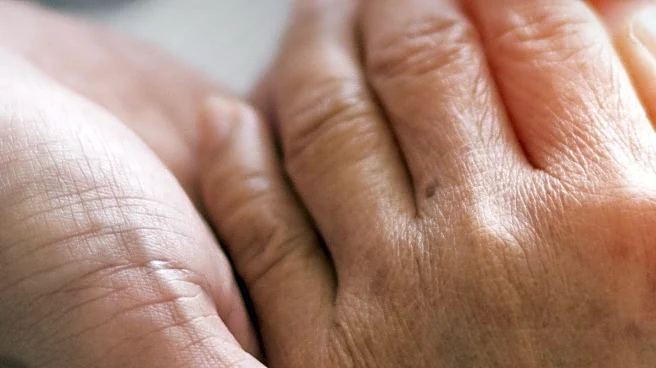What is the story about?
What's Happening?
Nargiz Noimann, founder of X-Technology, emphasizes the importance of emotional recovery in cancer care. She highlights the prevalence of depression and anxiety among cancer survivors, advocating for routine emotional recovery practices. Noimann proposes three non-negotiable practices: consistent distress screening, stratified care pathways, and practical adjuncts like virtual reality. These practices aim to improve patient outcomes by addressing untreated pain and distress, which can worsen health outcomes and increase healthcare utilization.
Why It's Important?
Emotional recovery is crucial for improving the quality of life for cancer survivors. By integrating emotional recovery into routine care, healthcare providers can better support patients' mental health, potentially reducing healthcare costs and improving survivorship outcomes. The emphasis on practical, scalable adjuncts like virtual reality offers innovative solutions for managing pain and anxiety, enhancing patient dignity and care quality. This approach aligns with broader healthcare trends towards holistic, patient-centered care.
What's Next?
Healthcare providers may begin implementing these practices, starting with pilot programs to assess their effectiveness. Success could lead to widespread adoption, transforming cancer care to prioritize emotional recovery alongside physical treatment. This shift may influence healthcare policies, encouraging more comprehensive survivorship care models that address both physical and emotional health.
Beyond the Headlines
The focus on emotional recovery highlights the need for healthcare systems to recognize and address the psychological impacts of cancer. By treating emotional recovery as a clinical outcome, healthcare providers can better support patients' overall well-being, potentially leading to long-term improvements in survivorship care and patient satisfaction.


















